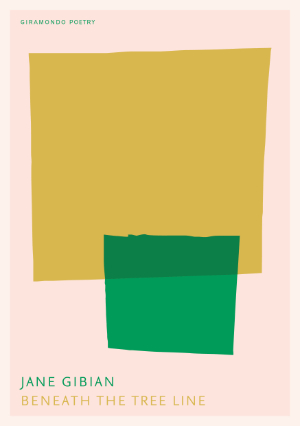
- Free Article: No
- Contents Category: Poetry
- Review Article: Yes
- Article Title: More than holding on
- Article Subtitle: New poetry by Jelena Dinić and Jane Gibian
- Online Only: No
- Custom Highlight Text:
In an impressive first collection, the South Australian poet Jelena Dinić incorporates her Serbian heritage and memories of war-affected Yugoslavia into an Australian migration narrative of clear-sighted beauty. William Carlos Williams wrote in the introduction to Kora In Hell: Improvisations (1920): ‘Thus a poem is tough … solely from that attenuated power which draws perhaps many broken things into a dance giving them thus a full being.’ Although far from improvisational, Dinić’s poetry compositionally integrates both fragility and strength as it draws together diverse experiences of war trauma, cultural displacement, the petty administrative routines of immigration departments, a Malaysian writing fellowship, Australian icons (such as the rainwater tank), folklore, and bathing in the Adriatic Sea.
- Featured Image (400px * 250px):

- Alt Tag (Featured Image): Jennifer Harrison reviews 'In the Room with the She Wolf' by Jelena Dinić and 'Beneath the Tree Line' by Jane Gibian
- Book 1 Title: In the Room with the She Wolf
- Book 1 Biblio: Wakefield Press, $19.95 pb, 83 pp
- Book 1 Readings Link: booktopia.kh4ffx.net/AoajbD
- Book 2 Title: Beneath the Tree Line
- Book 2 Biblio: Giramondo, $24 pb, 87 pp
- Book 2 Cover Small (400 x 600):

- Book 2 Cover (800 x 1200):

- Book 2 Cover Path (no longer required): images/ABR_Digitising_2022/Mar_2022/Beneath the Tree Line.jpg
- Book 2 Readings Link: booktopia.kh4ffx.net/GjqgvB
While influenced by Serbian poetry, particularly that of Vasko Popa (‘Give me back my rags’), Dinić searches the dislocation and strangeness of migrant experience for a language that connects identity deeply to homeland. The poem ‘Zahra’s Page’ critiques administrative ‘box-ticking’ and indeed all bureaucracies that dehumanise, infantilise, or diminish respect for individuality. There is a quality of lucid toughness that sparkles in a poem such as ‘Boudoir Grand’:
She opens its mouth to warm her body,
then takes off her cardigan.Hands rise and strike the keys.
Broken ivory bones smell of elephants.Only the sounds, hard and soft, violently repeat
like birds fighting for their prey.on the edge of a pillow filled with feathers.
Like an animal that needs to survive I sharpen my earsand look up
at the music in the air.
Popa’s strongest influence might be found in Dinić’s succinctness, and in the slightly surreal imagery, often elliptically striking. The poems cover a great deal of emotional and intellectual ground in very few lines. Folk idioms hold wisdoms that remain powerful – as a grandfather says, ‘Not easy on earth ... not easy below’ (‘The Silence of Siskins’) – and fairy tales are also treated pragmatically as if they have lost their power through cultural displacement: ‘Down in the basement / the fairytales / smell of mould’ (‘Hide and Seek’).
Dinić effortlessly finds metaphoric potency in ordinary events and objects (‘Babysitting’, ‘Handbag’, ‘Reading’, ‘Scrapbooking’). These pared-back poems possess a distinct quality of complexity perhaps best seen in the title poem, ‘In the Room with the She Wolf’, which although ostensibly about washing an old dress, moves swiftly into larger themes of death and identity: ‘Coming / closer / is this a girl who turned into me? / I circle her like an opponent ... her body will take my shape. / I know her weak spots. / I can’t protect her from myself.’ The poem is a remarkable account of identity in conflict. As old and new selves circle each other, the poem ends with the slightly bleak, inevitable conclusion: ‘There is no going back.’
Poems such as ‘The House’, ‘Rainwater Tank’, and ‘The Water Factory’ recall the observations of French philosopher Gaston Bachelard in The Poetics of Space (1964): how our perception of home shapes our thoughts, memories, and dreams when we inhabit space. Dinić concludes ‘The House’ with the lines ‘only air is coming through the floorboards – / how it sounds like wheezing. / Like a fight for life.’ Danger seems always to be nearby: a water factory has metal hooks; words are ‘trapped’ by poems; a rainwater tank weakens the knees. The constructions of civilisation are fragile, and there is an overarching ancestral history that is not always comforting.
The section beginning with ‘Devil’s Elbow’ contains one of my favourite poems in the collection, ‘The Treachery of Images’. Exploring trust, distrust, and eroticism within a relationship that appears to be as much with poetry itself as with a real lover, the poem offers the image of a strong woman who just might let a snake out of its basket, ‘but the snake / will have a mind of its own’. Dinić definitely has a mind of her own, and these poems of visceral lyricism – ‘The small flames // burn violently / in my eyes’ (‘Back’) – return repeatedly to cultural origins both imaginatively and physically. The initial couplet in the collection, ‘Swing’, when read again, in retrospect, suggests that an essential resilience and creativity, sometimes earned through reworking trauma, underpin self-authenticity, ‘When my country collapsed, I was on a swing. / My mother shouted from her window “hold on, hold on”.’
Jane Gibian’s fifth collection Beneath the Tree Line begins confidently with ‘Tilt’, a poem that, despite the formal, neatly lineated stanzas and precise detail, implies that the perspectives here will ask the reader to consider what is imbalanced, uneven, off-centre. It’s not surprising that the second poem in the collection, ‘Balancing Summer’, is an exquisitely toned poem of pure balance, where naturalistic observations are displaced from narrative and emerge almost as collage. The poem ‘where walls meet’ further explores the orientation and disorientation between the human and natural worlds ‘where earth meets ditch and weed’ and ‘wall hits gate’, and where mountains are chopped and dispersed. The poem is stripped of capitalisation and full stops and this absence of boundaries enhances the sense that we inhabit a precious, precarious space between nature and what we desecrate to make way for our houses and cities. Gibian’s interactions with the environment are quietly respectful and celebratory of nature’s beauty, diversity, and vulnerability.
The book’s epigraph acknowledges the UK poet Alice Oswald’s lyrical experimental work, especially perhaps its compulsive inner music (in the stage directions to her second collection, Dart, 2002, Oswald suggested that ‘All voices should be read as the river’s mutterings’). In this tradition, Gibian’s poems are remarkable accretions of sedimentary detail in which the reader is almost ask to eavesdrop on the way linguistic processes construct an environment of words. Nature, though ‘less golden’, is still shedding and renewing itself. Observations are ordinary, descriptive, at least on the surface, yet extraordinary in litany and texture. ‘Grenade’ is a poised example, ‘To let time pass with ease / like the grey-green lichen, tufts of unspun wool / hanging from the branches’ – and a few lines later, ‘The pinecone grenade holds // a season, a stopwatch ticking towards winter.’
These poems feel understated yet multiplex and I was reminded of David Lehman’s comments in The Last Avant-Garde (1998) where he discusses John Ashbery’s poetry in terms of Zeno’s paradox: where a journey is interrupted before it gets off the ground ‘and the denouement advancing slowly never arrives, though it remains imminent’. Gibian’s poems often end as surprising interruptions or pauses, accomplished with significant skill because nothing is surmised or judged. Again, as Ashbery suggested in My Philosophy of Life (1995) ‘sort of let things be what they are.’ Nature is allowed its own presence, but there is also an intensity of observation that responds to what Oswald terms ‘the hush of things unseen inside, the heartbeat of dead wood’.
Gibian seems interested in the way we catalogue, organise, and are shaped by information, and she approaches these concerns through variable poetic forms. ‘Lash’ is written in epistolary mode, and there are several found poems including ‘Seventeen titles on the New Books shelf: June–July 2019’, as well as a medley of excerpts from Wagga Wagga’s ‘News of the Week’ column from The Worker (1910). In contrast, the poems that investigate nature, particularly the marks of human presence upon environment, are all the more engaging because of the sensual acuity of imagery, ‘a dissected escalator stacked in neat rows’ (‘Street of hollows’), ‘the percussive rain of uncooked rice hitting the pan’ (‘Each turn’), ‘Mouths learning to stitch together new vowels’ (‘Double-jointed’). Human experience carries neither more nor less weight than nature’s, in a perspective that is humble yet somehow interdisciplinary.
The text of several poems in the final section of the book, (‘within’, ‘Hint of a track’, ‘slow-moving eye’, ‘restless’) spills across the page organically as natural formations with plenty of space and visual drama. It feels as though Gibian can write about anything, from a loans slip to an imaginative curiosity cabinet, but it is the experience of poetic engagement with nature – from the beautiful elegy ‘First season’ to the final lines of the last poem in the collection, ‘tidemark’, ‘that part of the beach / pining for home, and at the centre / of an instrumental continuo around which / all other voices circle and rub’ – that elevates to brilliance this optimistic, generous poetry, which more than holds on to a world cautiously contemplating its future.



Comments powered by CComment